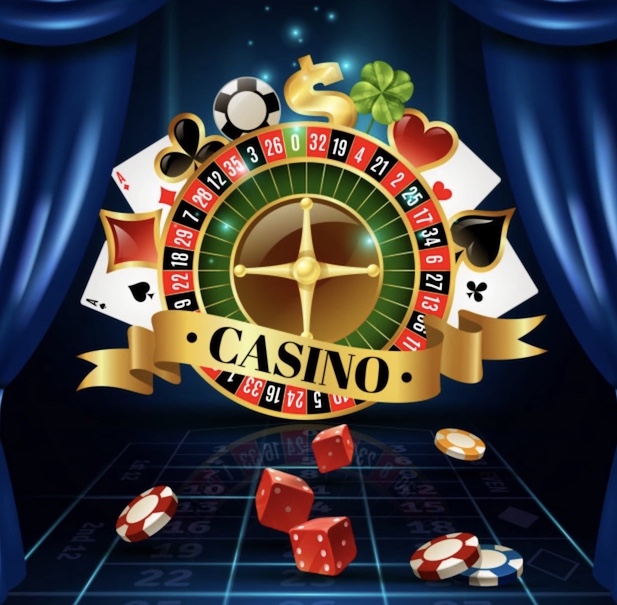
Casino games have captivated enthusiasts for centuries, pulling them into a world of thrill, luck, and fortune. From the blinking lights of gambling machines to the intense nature of poker games, these games offer a unique combination of entertainment and risk. However, beneath the shiny exterior of this glitz and style lies a sophisticated relationship of math that shapes every conclusion and decision made within the gambling establishment.
Comprehending this connection between gambling games and math not only boosts the gambling experience but can also help gamblers make wise choices. Whether you are a occasional player or a passionate enthusiast, recognizing the mathematical principles at play can provide insightful understandings into likelihood, probabilities, and strategies, eventually affecting how one tackles these games of luck.
Arithmetic Likelihood in Gambling
In the world of casino games, statistical likelihood plays a vital role in determining outcomes and informing gambler choices. Every game has a unique set of regulations and a particular likelihood framework that influences its dynamics. For instance, in activities like roulette, players must understand the probabilities of hitting a particular number or color. The probability of specific events happening can be assessed, and this knowledge can greatly affect wagering strategies.
Gambers also need to be aware of the casino advantage, which is the statistical benefit that casinos hold over players in the long term. This edge differs across various games. In 21, skilled players can use strategies to minimize the casino edge to as low as one percent, while in activities like slots, the casino edge can be significantly greater. Comprehending the house edge allows gamblers to make wise decisions about which games to participate in and the amount to wager. online betting not on GamStop
Furthermore, likelihood is fundamental in the principle of danger versus gain in gambling. Each wager carries a specific risk level, and players must evaluate the potential return against that danger. Activities like the poker game require gamblers to not only calculate the odds of their personal showing winning but also to assess the likelihoods of their rivals’ showings. By applying statistical concepts to their gameplay, gamblers can enhance their chances of winning and participate more strategically in the thrilling realm of gambling activities.
Anticipated Value in Gambling Activities
When talking about casino activities, one of the basic concepts rooted in mathematics is the expected value. This numerical metric assists players understand the possible results of their wagers over time. In simple terms, expected worth (EV) determines the mean amount a gambler can anticipate to win or lose per wager if they were to play the activity many times. Each activity has its unique EV, affected by the probabilities and the house edge, which signifies the advantage that the casino holds.
For example, consider a game like the roulette game. The anticipated worth can be derived based on the specific wager made. If a player bets on a single number, the payout is 35 to 1, but the true chances of success that wager are 1 in 37 (in European roulette). This results in a detrimental anticipated worth, showing that, on the whole, players will lose money over a period when playing this type of bet. Grasping this idea allows players to make better informed choices about which activities and wagers may be more favorable.
Furthermore, the investigation of anticipated value can lead to better money management. Gamblers who understand the mathematics behind their games are often able to set practical goals. By acknowledging their possible losses and gains, they can adjust their gambling strategies appropriately, which may improve their total gaming experience overall. As a consequence, anticipated value serves as a crucial tool for both novice and seasoned gamblers to steer through the frequently volatile nature of gambling activities.
Approaches and Probabilities: The Math Behind Winning
In casino games, understanding the chances is crucial for participants looking to boost their opportunities of success. Each game has its own distinct set of probabilities that dictate winning outcomes, and these numbers are often found in the gaming regulations or payout tables. For example, in activities like blackjack, gamblers can improve their chances through methods such as tracking cards, which is based on mathematical principles to gain an edge over the house. By educating themselves with the odds, gamblers can make more informed determinations on when to place bets and when to fold.
Additionally, the concept of expected value holds a critical function in casino strategies. Expected value assesses the mean outcome of a bet over the long run, allowing participants to judge whether a certain stake is valuable taking. For instance, video slots have a fixed return percentage, which can suggest the typical return a player can look for on their stakes. By selecting activities with better average outcomes, participants can minimize the casino edge, maximizing their future winnings in the long run.
In conclusion, successful players often utilize a mix of chance and mathematical strategy to enhance their gaming experience. While luck can’t be controlled, managing a betting strategy based on mathematical insights can lead to more positive results. By utilizing techniques such as budgeting and picking games, gamblers can apply math to navigate the unpredictable nature of gaming, making the most of their efforts and resources at the tables.